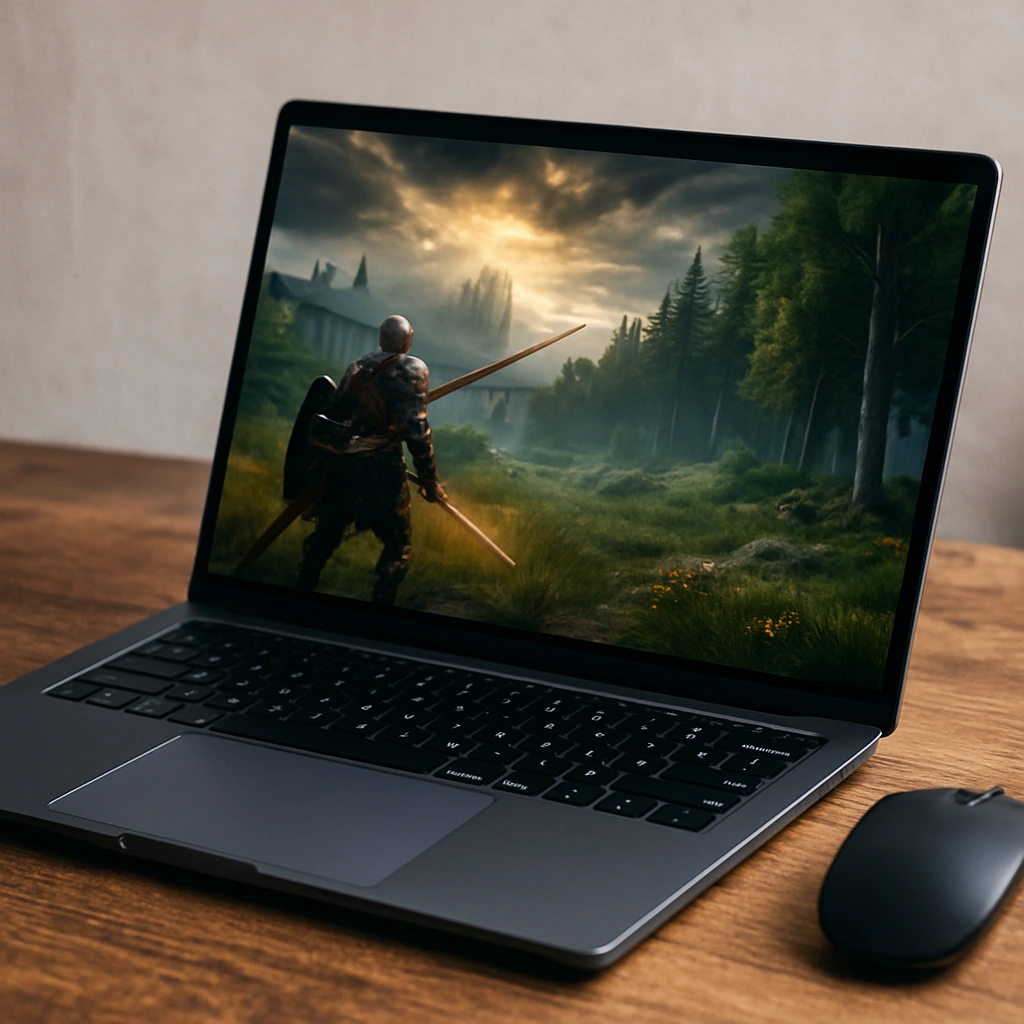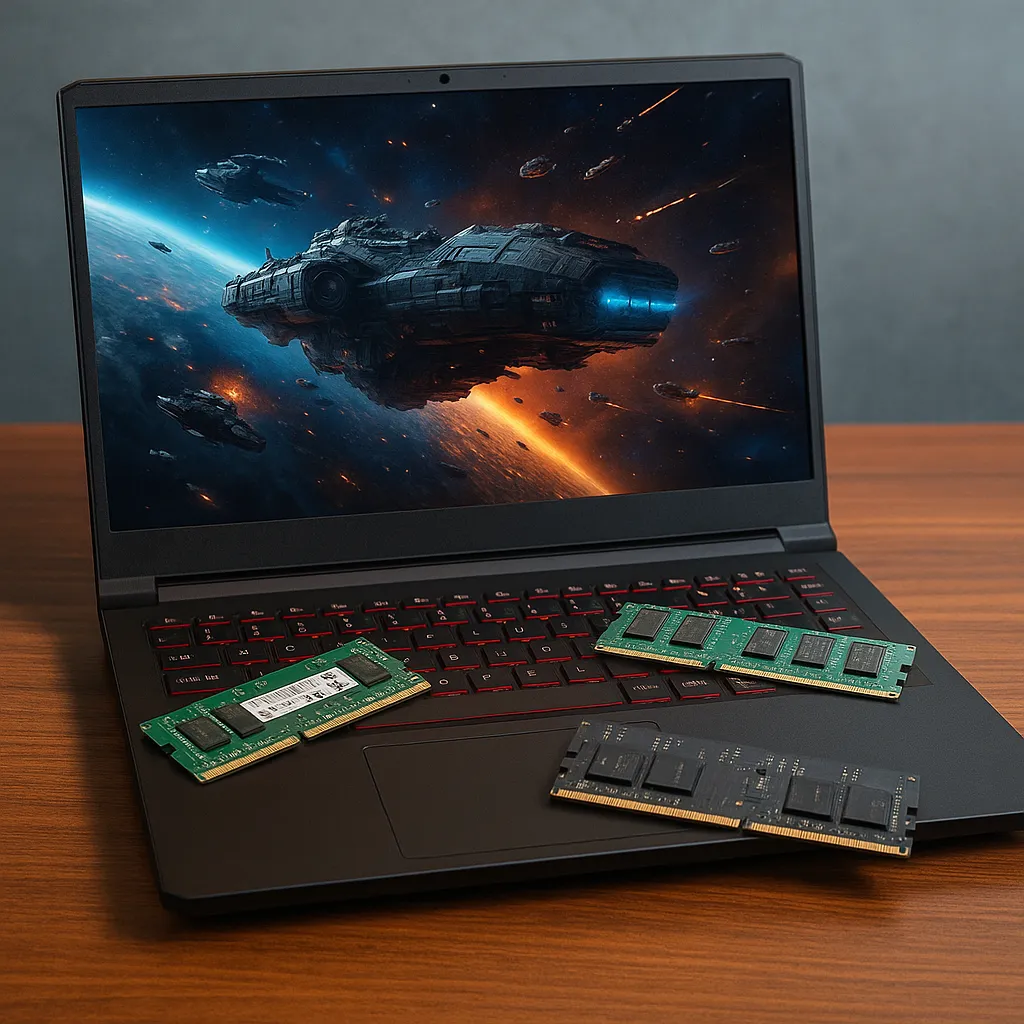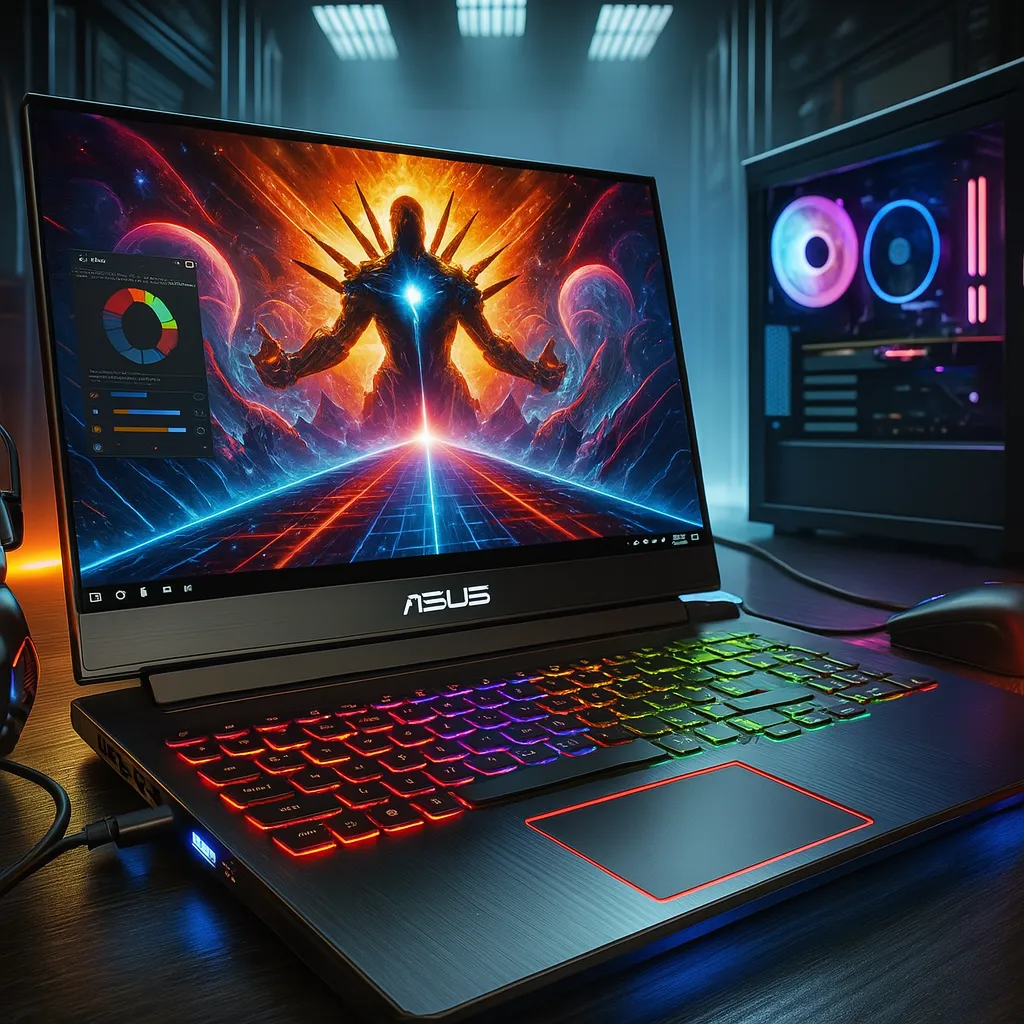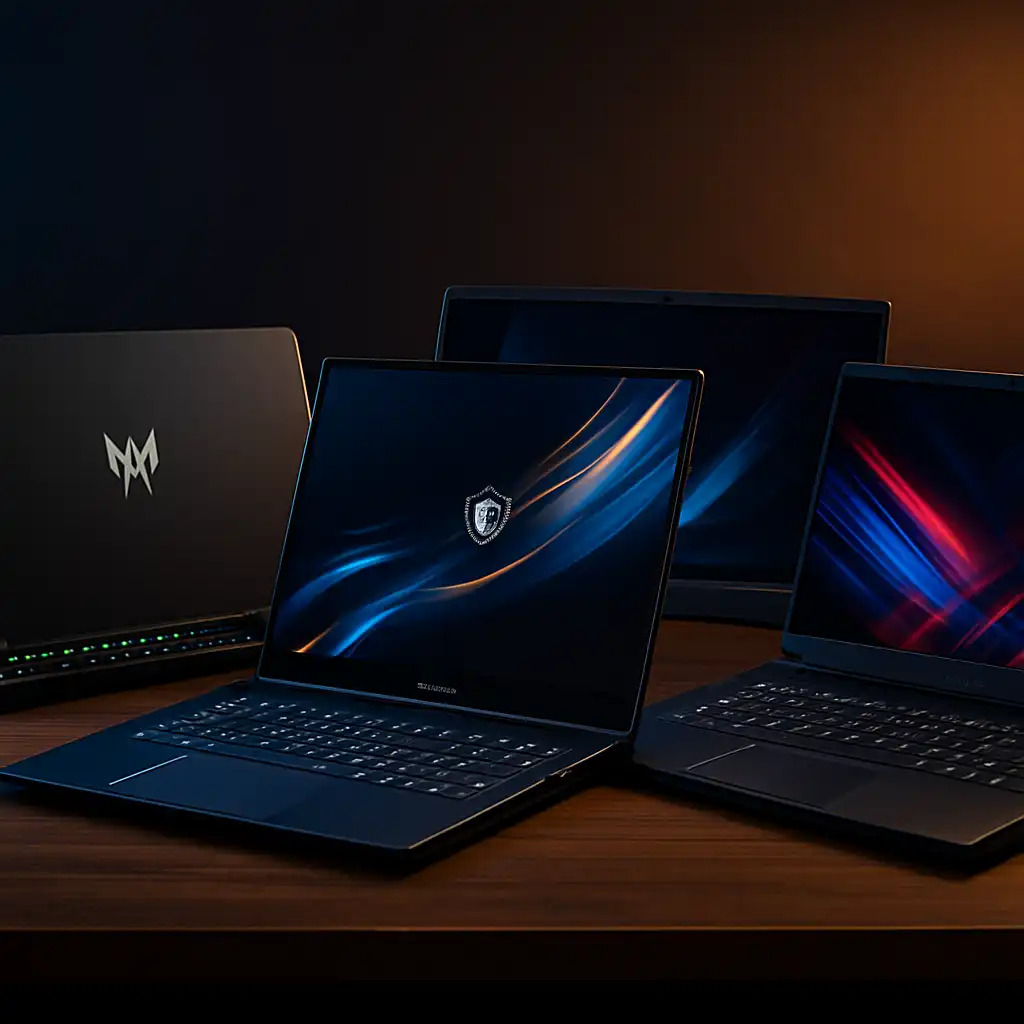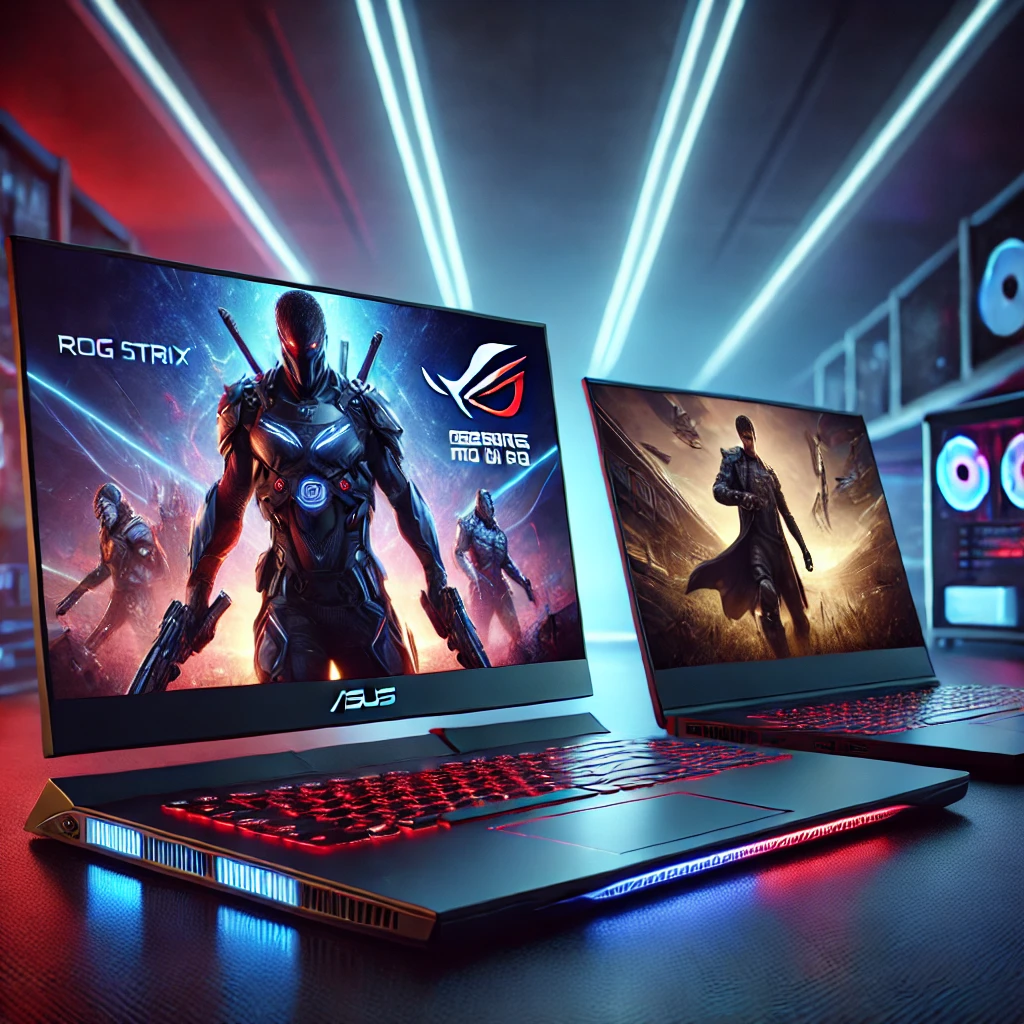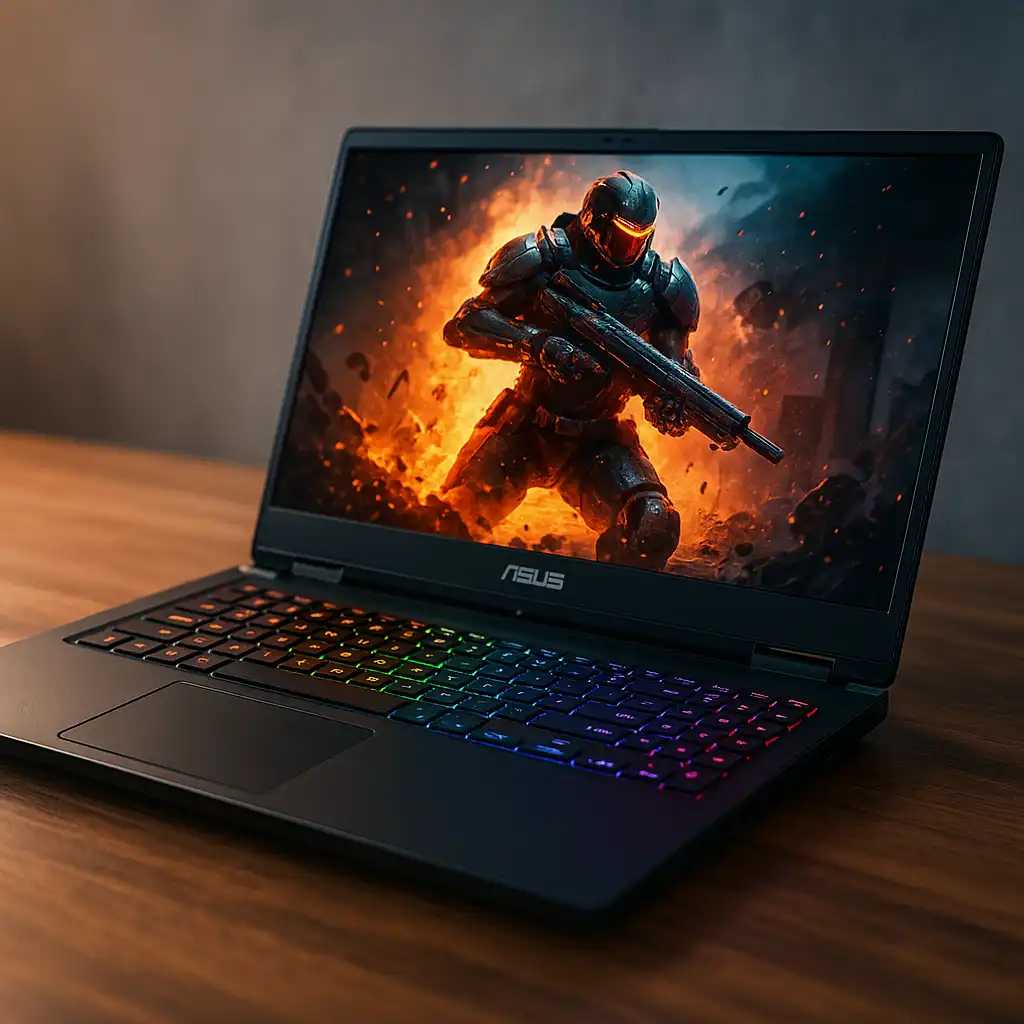Can You Play Games on a Non-Gaming Laptop – What to Expect From Integrated Graphics
Disclosure: This post contains affiliate links. LaptopVoyager.com participates in the Amazon Associates Program and may earn commissions on qualifying purchases, at no extra cost to you.
Last Updated: February 2026
Many students and casual users already own a standard laptop and wonder if it can handle gaming. The answer depends less on the brand name and more on the hardware configuration inside the device.
This guide explains when you can realistically play games on a non-gaming laptop, what limitations to expect, and when upgrading to a gaming-focused system makes more sense.
👉 For a full breakdown of dedicated systems and performance tiers, see our guide to best gaming laptops.
🔍 What Makes a Laptop “Non-Gaming”?
A non-gaming laptop typically relies on integrated graphics rather than a dedicated GPU. These systems prioritize battery life, portability, and quiet operation over sustained graphics performance.
They’re commonly used for school, office work, web browsing, and streaming. While capable in many areas, they aren’t designed primarily for modern gaming workloads.
🔍 Types of Games That Can Run on Non-Gaming Laptops
Based on specifications, integrated graphics can handle:
- Older or less demanding games
- Indie titles
- Strategy or simulation games with lighter graphics
- Cloud-based or streamed games
More demanding modern titles usually require a dedicated GPU. Without one, performance may be limited to lower settings and reduced frame rates.
🔍 Hardware Factors That Matter Most
Even without a gaming label, certain specifications improve results.
Processor: Modern multi-core CPUs with strong integrated graphics perform better than older entry-level chips.
RAM: 16GB memory helps integrated graphics share system resources more effectively than 8GB.
Storage: SSD storage improves load times but doesn’t directly increase frame rates.
These factors determine whether light gaming is practical or frustrating.
🔍 Performance Limitations to Expect
Integrated graphics share system memory and thermal headroom with the CPU. That means heavy gaming workloads can reduce overall system responsiveness.
Thermal design also plays a role. Thin-and-light laptops prioritize efficiency and quiet operation, which limits sustained high performance under load.
🔍 Cloud Gaming as an Alternative
Cloud gaming services shift most of the processing to remote servers. In this scenario, the laptop primarily streams video rather than rendering graphics locally.
A stable internet connection becomes more important than GPU power. This option can make modern games playable even on non-gaming laptops.
🔍 When a Non-Gaming Laptop Is Enough
A non-gaming laptop can work if:
- Gaming is occasional rather than daily
- You play lighter or older titles
- Portability and battery life matter more than graphics performance
If gaming becomes a primary activity, a system with a dedicated GPU will offer more consistent performance.
📌 Key Takeaways
- You can play some games on a non-gaming laptop, depending on hardware
- Integrated graphics limit modern gaming performance
- More RAM improves integrated GPU efficiency
- Cloud gaming can expand playable options
🟢 FAQs
Q: Can you play modern AAA games on a non-gaming laptop?
Most modern AAA titles require a dedicated GPU for stable performance.
Q: Is 8GB RAM enough for gaming on a non-gaming laptop?
It can work for lighter titles, but 16GB generally improves stability with integrated graphics.
Q: Does SSD storage improve gaming performance?
SSD storage improves load times but does not significantly increase frame rates.
✅ Conclusion
You can play games on a non-gaming laptop, but expectations should match the hardware. Integrated graphics handle lighter titles and occasional gaming reasonably well.
For consistent performance in modern games, however, a dedicated gaming laptop provides stronger cooling, graphics hardware, and sustained power delivery.

